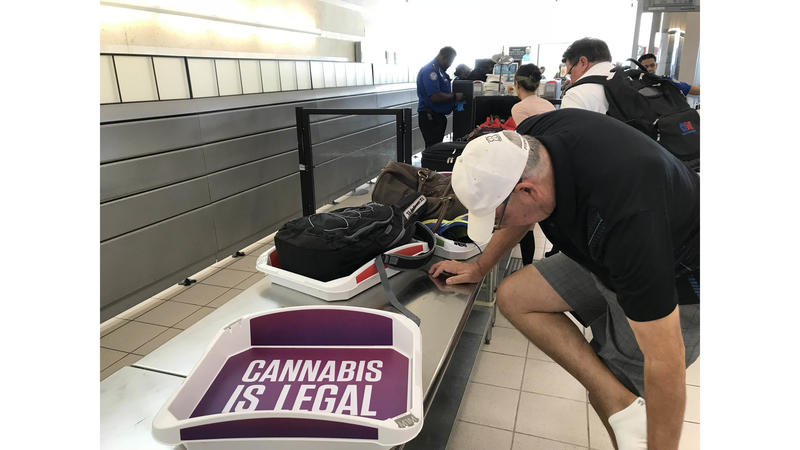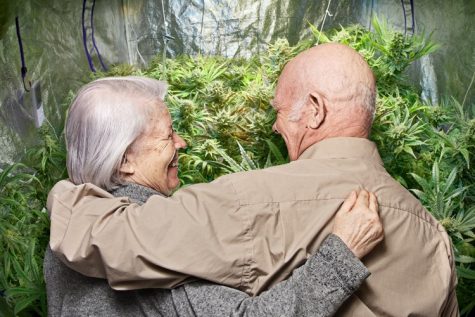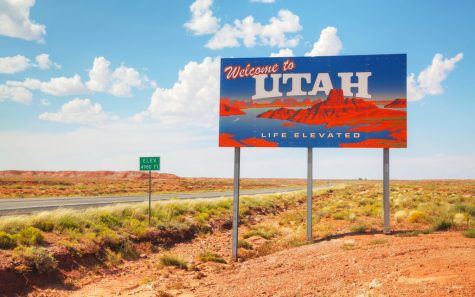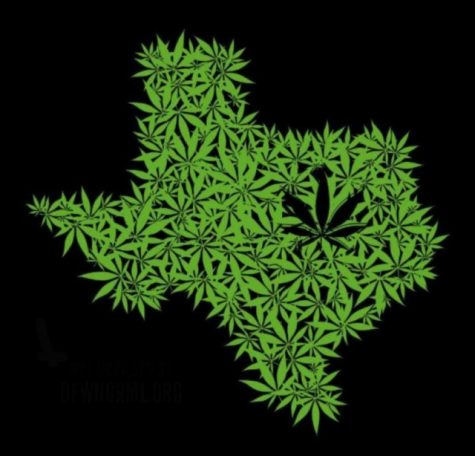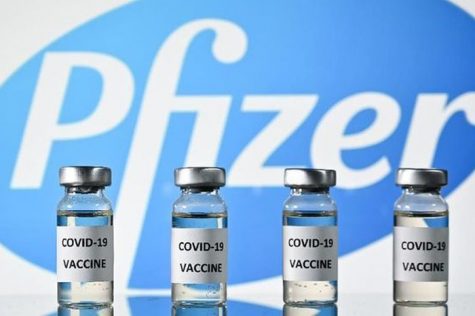Cannabis ads appear in TSA checkpoint trays at Ontario International Airport
With social cannabis set to go legal in California in January, the state will enter a new era for legalization.
According to a recent article by the Los Angeles Times, the Ontario International Airport used stickers to cover the bottom of the trays at the Transportation Security Administration checkpoint that mentioned, “CANNABIS IS LEGAL. Traveling with it is not. Leave it in California.”
Beneath the sticker were five corporate logos belonging to Organa Brands, the 7-year-old cannabis company that came up with the “Cannabis is legal” campaign.
“I’m still pinching myself,” Organa Brands co-founder Jeremy Heidl, said.
The TSA is a federal agency that does not regulate advertising messages that cover the trays at the checkpoints. TSA spokeswoman Lorie Dankers said local airport authorities contract with the company that provides the bin and the TSA is “not part of that financial deal.”
Launched in 2010, Organa Brands is one of the largest cannabis companies in the industry. It first produced cannabis extracts and then focused on vape pens with disposable cartridges. The company now sells products in 11 states, has 12 production facilities and sells hardware in 19 countries.
The new campaign was brought up by Organa’s public relations manager Jackson Tilley, who approached Heidl about advertising in airports. Afterwards, Tilley contacted Security Point Media, a Florida-based company that has a patent on the plastic trays and the carts at security checkpoints.
“If you see that anywhere in the U.S., that is part of our intellectual property,” said Joe Ambrefe, president and chief executive of Security Point Media.
Sacramento International was the first airport to agree to the cannabis campaign, but it never happened. The message was supposed to be, “Cannabis is illegal to carry across state lines.”
“That doesn’t send the right message,” said Organa Brand’s Heidl. “And we could look bad saying ‘cannabis is illegal.’ We are working hard to normalize it and do good. We felt like this was a responsible campaign.”



